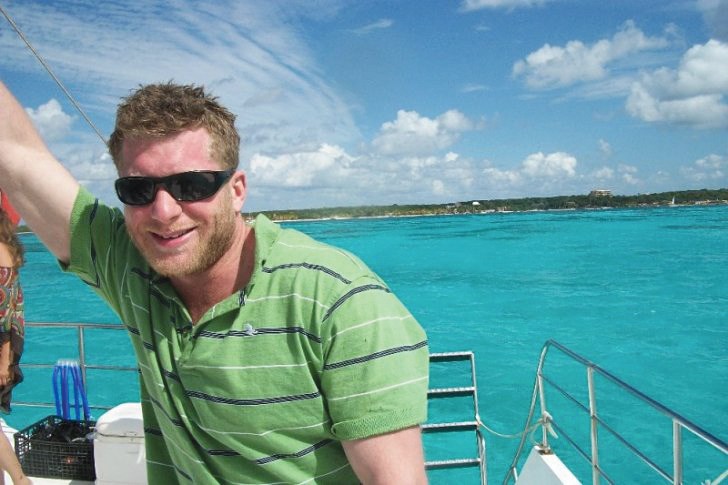The Vancouver Police Department (VPD) officers involved in an altercation that ended with the death of Sechelt resident Myles Gray five years ago will not be charged.
B.C.’s Prosecution Service announced Dec. 16 that no charges were approved against the officers involved in the arrest of Gray on Aug. 13, 2015.
In August it was reported that Gray, a 33-year-old businessman, was making deliveries near South East Marine Drive in Vancouver when he became involved in an altercation with several Vancouver police officers responding to a call about a man spraying a woman with a garden hose.
An Independent Investigations Office (IIO) probe was concluded in January 2019, and a report forwarded to Crown counsel requesting consideration of charges.
In the Dec. 16 statement, the Prosecution Service concluded, “the available evidence does not meet the BCPS’s charge assessment standard.”
“The only witnesses to the physical altercation and restraint of Mr. Gray by the police were the attending members of the VPD. Based on the evidence available, the BCPS is not able to prove, beyond a reasonable doubt, that the officers committed any offence in relation to the incident.”
An accompanying document explaining the decision in more detail said a post-mortem “could not determine a discrete cause of death.” It said Gray had suffered “extensive injuries” that were “likely suffered during his arrest,” but that “none of these injuries would have been fatal in itself.”
Toxicology evidence also found that Gray had ingested Mitragynine, also known as Kratom, and according to the statement, the forensic pathologist and other experts couldn’t rule out that Gray’s death was caused “solely by factors unrelated to the use of force by police,” by the ingestion of Kratom specifically “or by the condition known as “‘excited delirium.’”
The pathologist listed the toxic effects of the drug, a pre-existing heart condition, “compromised cardiorespiratory function due to forcible restraint,” other injuries, the effects of pepper spray, anxiety and physical exertion as possible factors contributing to his death.
In a summary of evidence, the statement said Gray went into cardiac arrest at 3:41 p.m. and was pronounced dead by paramedics at 4:21 p.m. “This followed an encounter with seven officers of the Vancouver Police Department (VPD) which took place in the raised, wooded yard of a property in Burnaby.”
It said that “while all officers describe Mr. Gray as resisting and offering a threat to the officers present, accounts of what he and the officers actually did at each stage of the encounter vary considerably,” and the officers “with limited exceptions” only spoke about their own use of force and not the actions of others.
“The contradictions between officers’ accounts in key areas are incapable of resolution such that it is difficult to determine a coherent narrative of events between 15:18 and 15:28 with any reasonable degree of confidence.”
The statement said despite those inconsistences, witness statements and police reports make clear Gray “broke free from attempts to handcuff him and, after an altercation, was taken to the ground by a ‘bear hug’ where he was restrained and hobbled prior to being handcuffed.” Officers said baton strikes, pepper spray and a “lateral vascular neck hold” were applied to Gray during the incident.
“It is also clear from the various reports and statements that Mr. Gray was subjected to several instances of the use of force by one or another VPD member during the 10-minute period,” said the report. And it found “undisputed evidence” that Gray “strongly” resisted arrest throughout the incident.
One officer was punched in the face during the incident, and another suffered a five-centimetre laceration to his forehead, likely from a tree branch.
When the IIO referred the file to the BCPS, it said officers may have committed manslaughter, aggravated assault and assault causing bodily harm.
With respect to manslaughter, Prosecution Service found the Crown wouldn’t reasonably be able to prove the officers’ use of force caused Gray’s death. As for assault, the report found “there is no reasonable prospect of proving that any of the following uses of force against Mr. Gray were excessive or otherwise unlawful.”



